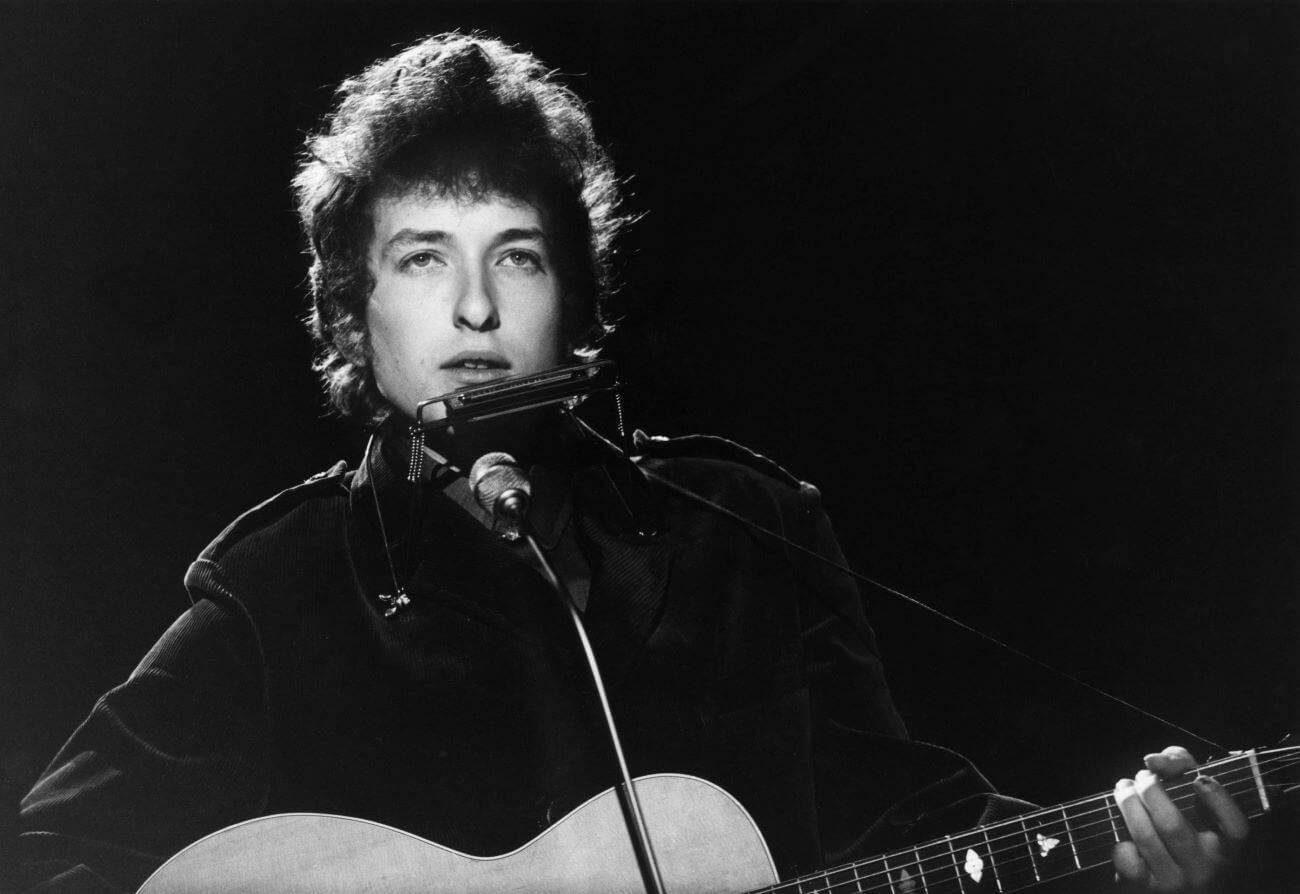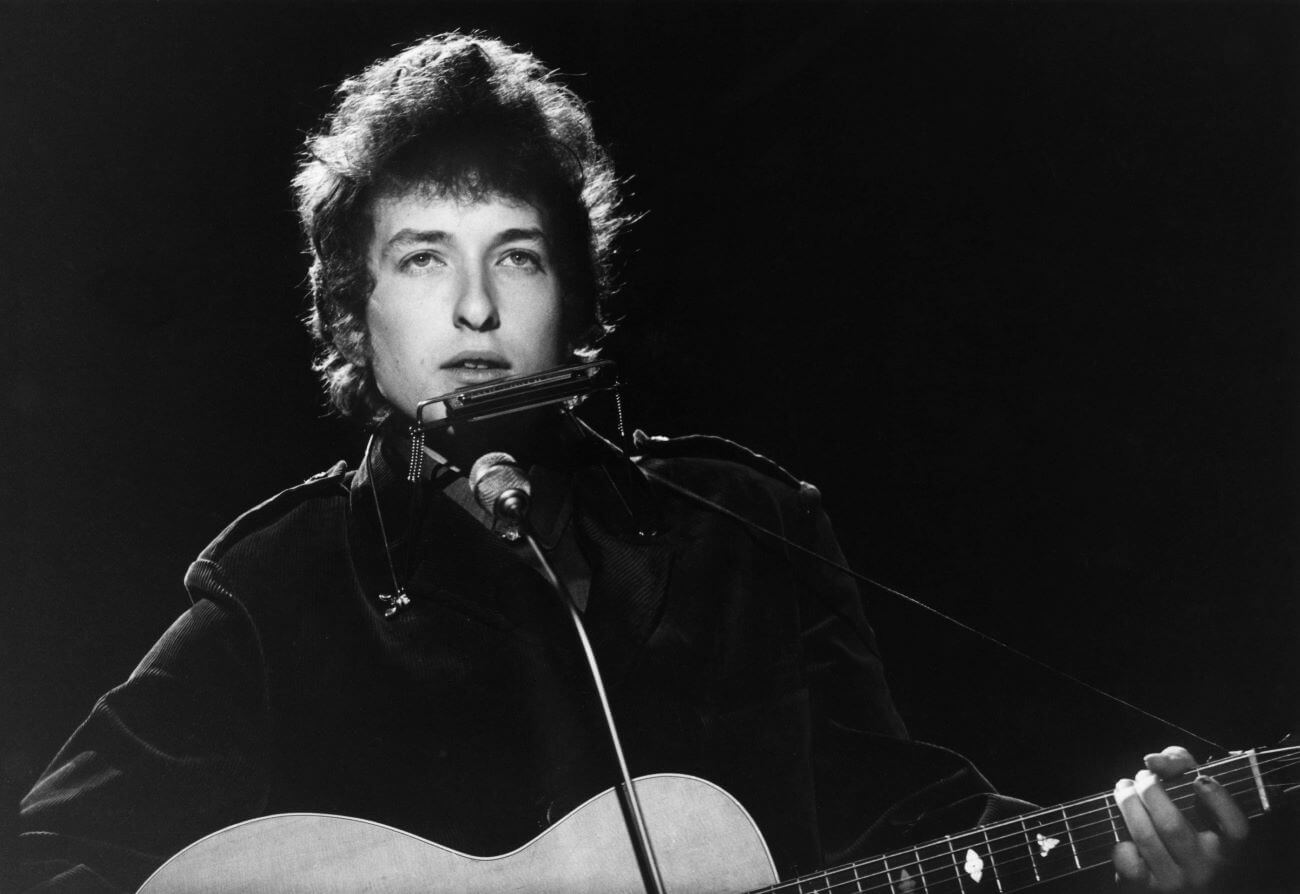
Bob Dylan’s Fans Said He Wasn’t Sincere in 1 of His Protest Songs
Bob Dylan began his career as a protest singer, but he quickly moved away from this type of song. As early as 1963, Dylan said he wanted to distance himself from politics. In 1971, though, Dylan wrote a song in response to the murder of Black Panther leader George Jackson. Though his fans had been wanting Dylan to return to his roots, some thought his new music lacked sincerity. While there was likely real emotion behind the song, Dylan’s more authentic self was not a protest singer.

Bob Dylan started his career as a protest singer
Dylan’s second album, The Freewheelin’ Bob Dylan, primarily contained songs he wrote, many of which were protest songs. Songs like “Blowin’ in the Wind,” “Masters of War,” and “The Times They Are a-Changin'” from his early albums cemented this reputation.
In 1963, Dylan’s music brought him to the National Mall during the March on Washington. He played four songs ahead of Martin Luther King Jr.’s “I Have a Dream” speech.
Bob Dylan’s fans doubted his sincerity in a protest song
By the mid-1960s, Dylan shifted from his folk roots. In 1966, he shocked fans by going electric, and he had almost entirely moved away from protest songs. His fans and fellow artists begged him to return to the genre, particularly to protest the Vietnam War, but Dylan refused. This sparked angry critiques.
Dylan claimed that the outcry against him was “all petty,” but in 1971, he released “George Jackson” in response to the recent murder of Jackson at San Quentin Prison. Though fans wanted Dylan to release more protest music, the timing now seemed calculated.
“I just don’t believe he means those words,” a fan told The New York Times. “I don’t believe he loves George Jackson, or relates to any of it anymore. It all smacks of calculation, of Dylan being afraid he’s losing his audience. People believed it when he sang about Emmett Till and Hattie Carroll and all the others who were destroyed by the system. I believed it back then. I don’t believe it about George Jackson.”
Dylan has since, very infrequently, voiced his support for social movements, so it’s unlikely that he fully fabricated his support for Jackson. It’s more likely that the song felt inauthentic because protest songs weren’t a natural medium for Dylan.
Dylan first moved to New York, at least in part, because he idolized Woody Guthrie. He primarily played Guthrie covers and even affected an accent to sound more like Guthrie. Guthrie, with songs like “All You Fascists Are Bound to Lose,” let his politics shine through his music.
Early in his career, Dylan wrote songs in the spirit of his idol. Though some of Dylan’s most famous and lasting songs are protest songs, he moved away from them the more he established his own identity as an artist.
He said he didn’t want to be involved in politics
By 1966, Dylan said that he didn’t even like listening to protest music.
“Anyway, message songs, as everybody knows, are a drag,” he told Playboy, per the book Dylan on Dylan: The Essential Interviews. “It’s only college newspaper editors and single girls under 14 that could possibly have time for them.”
He admitted that he never thought of himself as a protest singer, and the only way he would get involved with any social causes was if he was the last person on earth.


